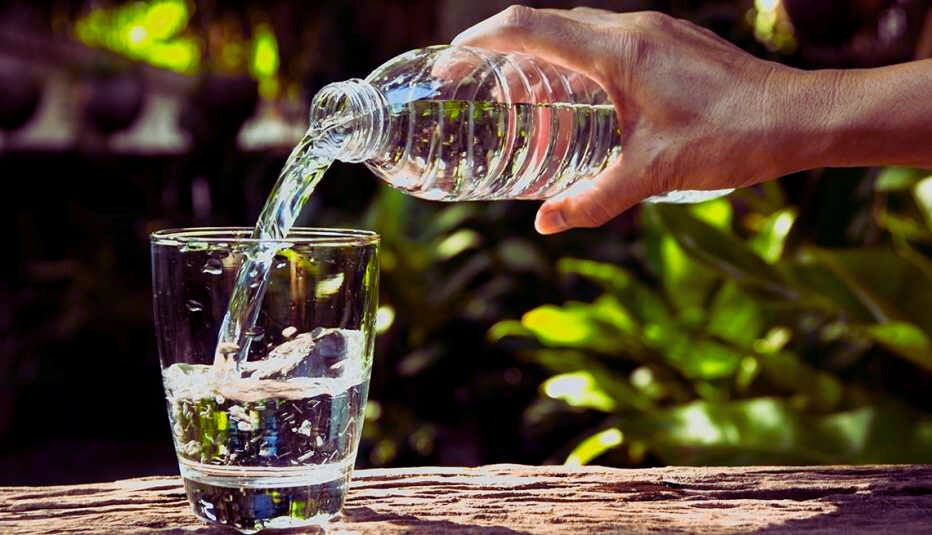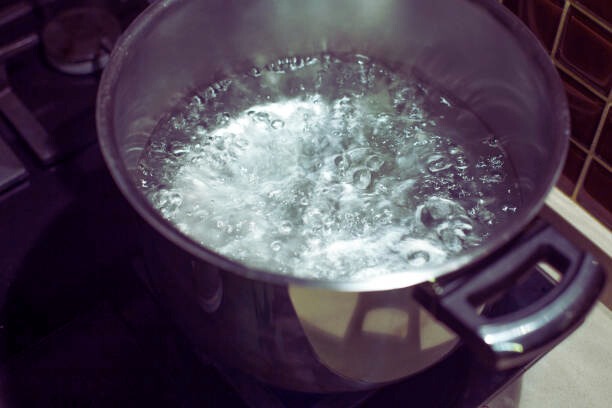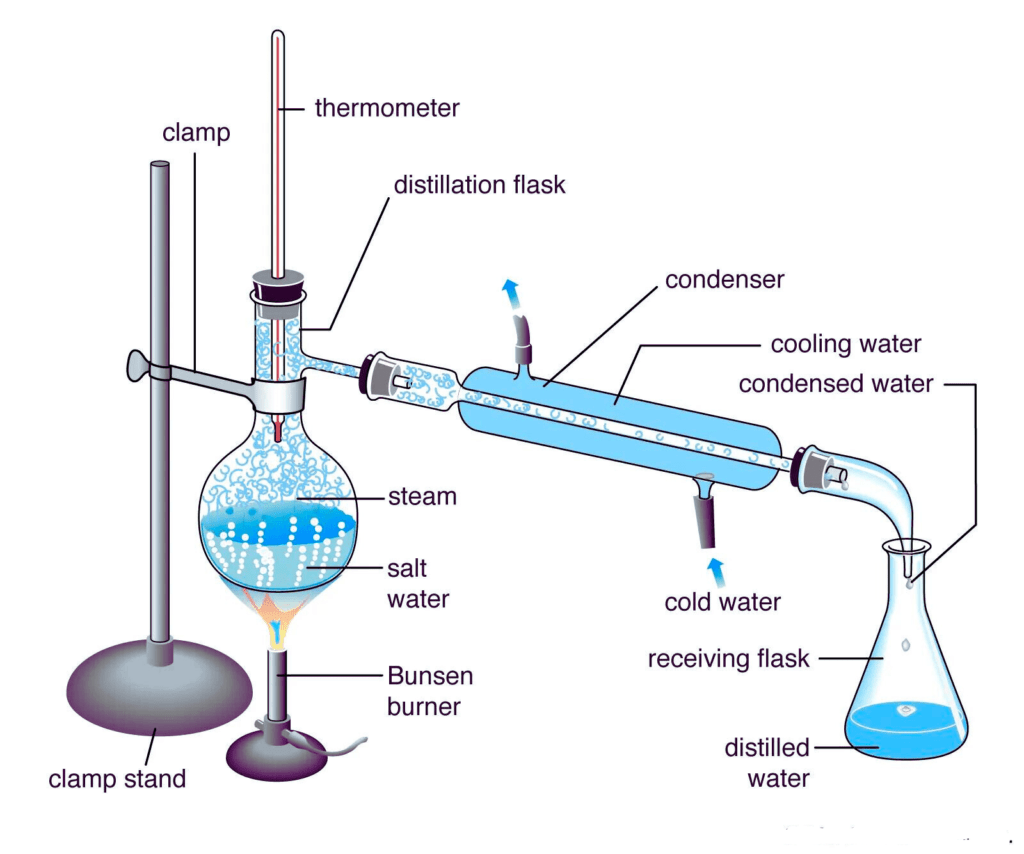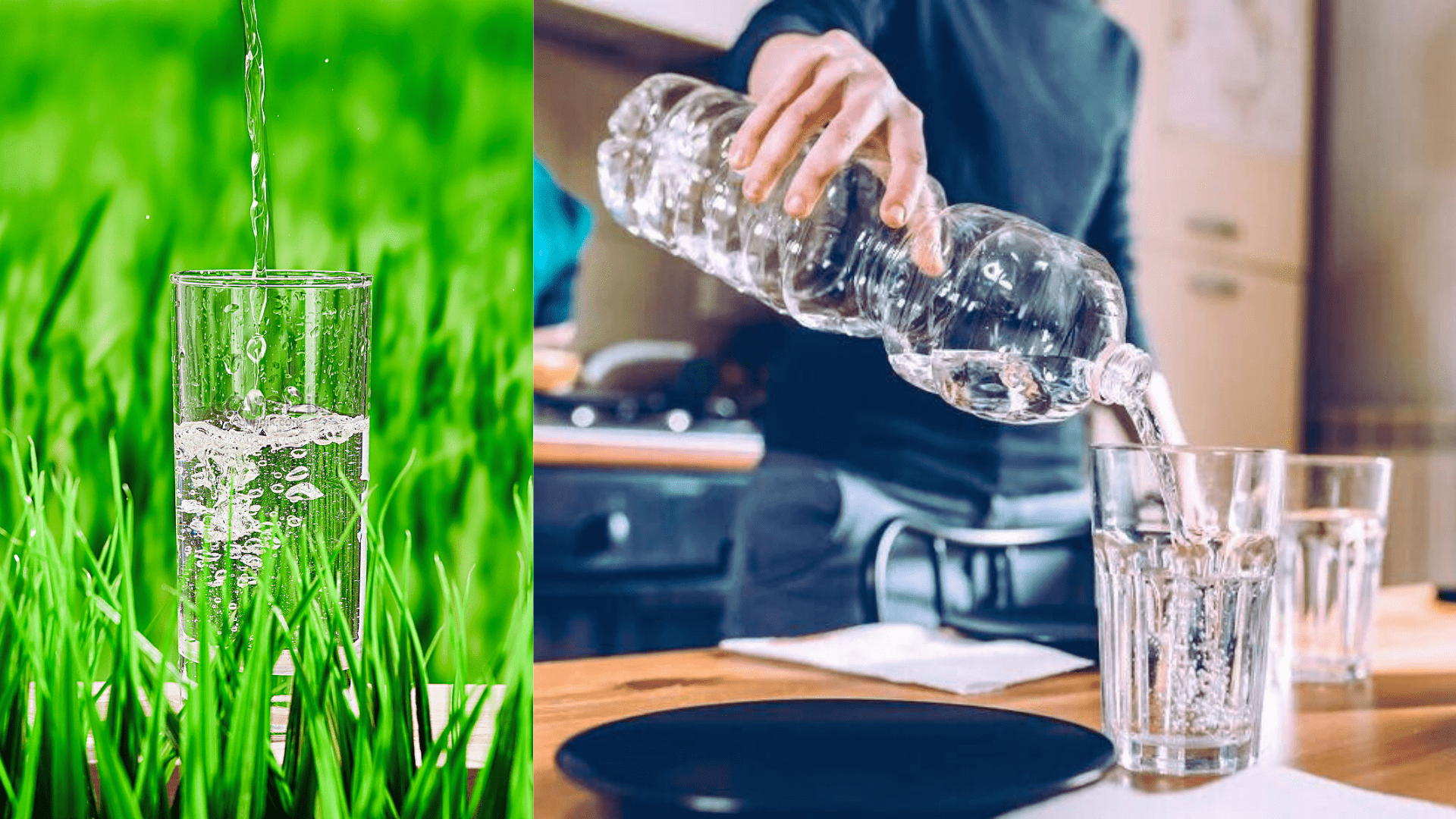Distilled water is water that has undergone a specific purification process called distillation. This involves boiling the water into vapor and then condensing it back into liquid in a separate container. The distillation process effectively removes impurities and minerals from the original water, making distilled water one of the purest forms of water possible. It is commonly used in settings where the presence of impurities or minerals could affect the outcome, such as in laboratories and certain industrial applications. Additionally, distilled water is used in medical devices, automotive cooling systems, and in the care of certain household appliances to prevent scale build-up.
Understanding Distilled Water
The Distillation Process

The distillation process involves three main steps: boiling, condensation, and collection of the distilled water. Initially, water is boiled until it evaporates. This phase change from liquid to vapor allows it to separate from impurities and substances with different boiling points, which remain in the original container.
In the next step, the steam is cooled in a condenser, transitioning back into its liquid form. This condensation process is crucial as it captures the purified water vapor, leaving behind the contaminants in the boiling chamber.
Finally, the distilled water is collected in a separate container, free from up to 99.5 percent of impurities, including bacteria, metals, nitrates, and dissolved solids. The resulting product is one of the purest forms of water available, suitable for a variety of uses where water purity is paramount.
How It Differs From Other Water Types
Distilled water is unique compared to other types of water primarily due to its purification process. It undergoes distillation, where water is boiled into vapor and then condensed back into liquid form in a separate container. This process removes impurities and minerals, making distilled water the purest form of water available. Unlike purified water, which may still retain some minerals, distilled water is completely devoid of natural minerals and contaminants. This lack of minerals means that while distilled water is excellent for avoiding impurities, it doesn’t provide the mineral benefits that other types of water, like spring water, might offer.
Where Distilled Water Shines
In the Home

Distilled water finds its unique advantages in various home applications, primarily due to its purity, as it’s free from minerals and contaminants. Here are a few areas where it excels:
- Cleaning: Distilled water is superior for cleaning because it’s free from minerals that could leave residues or spots, making it ideal for streak-free surfaces.
- Cooking: Using distilled water in recipes, especially soups, can enhance flavor clarity and ensure a cleaner taste, as it does not introduce any additional minerals or impurities into the food.
- Home Distilling: For those involved in home distilling, distilled water is preferable for diluting spirits to achieve the desired clarity and consistency, avoiding the cloudiness or bubbliness that hard water might introduce.
In Industrial Settings

Distilled water plays a critical role in various industrial applications, primarily due to its high purity level, which is essential in settings where mineral buildup and contamination could pose significant issues:
- Preventing Mineral Buildup: In industries where machinery and equipment are sensitive to scale and mineral deposits, distilled water is invaluable. Its lack of minerals ensures that machinery operates efficiently without the hindrance of buildup, which could lead to downtime or damage.
- Laboratory and Medical Applications: The high purity of distilled water makes it a staple in labs and medical settings, where it is used for everything from specimen preparation to equipment sterilization. This prevents any potential contamination that could affect research outcomes or patient safety.
- Manufacturing of Cosmetics and Pharmaceuticals: The production of cosmetics and pharmaceuticals often requires water that does not contain any impurities that could affect the quality and safety of the products. Distilled water, due to its purity, is widely used in these industries.
For Personal Care
Distilled water offers numerous benefits for personal care, including cosmetic applications and daily hydration needs:
- Cosmetic Products: Distilled water is commonly used in the production of cosmetics to ensure the purity and safety of these products. Its lack of minerals and impurities makes it an ideal base for formulations, contributing to the effectiveness and stability of cosmetic items.
- Hydration: For everyday use, distilled water is marketed for its purity, making it an appealing option for drinking, especially where the quality of tap water might be of concern. Bottled distilled water is readily available, providing a convenient source of hydration.
Why Choose Distilled Water?
Purity and Contaminant Removal
Choosing distilled water is beneficial primarily due to its high purity and effectiveness in removing contaminants. Distillation processes eliminate impurities found in drinking water, including pesticides and various chemicals that may pose health risks. This method achieves more than 99.9% removal of minerals dissolved in water, ensuring a virtually contaminant-free product. Distilled water is particularly advantageous because it can remove a wide array of contaminants, such as sodium, hardness compounds, and almost all other dissolved substances, rendering the water exceptionally pure. This makes distilled water an ideal choice for those seeking the highest level of water purity for consumption, medical applications, or sensitive experimental setups where contaminant interference is a concern.
Longevity of Appliances
Using distilled water in home appliances is beneficial for extending their lifespan and maintaining efficiency. Distilled water is free from minerals and impurities, which can otherwise accumulate in appliances, leading to residue buildup. This buildup can clog systems and reduce appliance efficiency over time. By using distilled water, appliances such as steam irons, humidifiers, and coffee makers can operate more smoothly and last longer because there’s no residue to cause damage or hinder performance. Therefore, distilled water not only ensures the purity of the water you use in your appliances but also contributes to their longevity and optimal functionality.
Health Considerations
Drinking distilled water is generally considered safe as part of a balanced diet. It is free from contaminants, which may offer a purer alternative to tap water. However, because it lacks minerals, some people find its taste bland. Regular consumption of distilled water does not present significant health issues, but it can potentially leach minerals from the body if consumed exclusively over long periods. As with any water source, the key is balance and ensuring you get the necessary minerals from other dietary sources. Some believe distilled water can help detoxify the body, although these claims vary and are not universally supported by scientific evidence.
Considering the Other Side
Environmental Impact
The environmental impact of distilled water production and use encompasses several concerns. Firstly, the production and energy consumption of distilled water machines contribute significantly to resource depletion and carbon emissions. Additionally, these machines necessitate substantial water usage and involve disposal issues, further exacerbating their environmental footprint.
Distilled water also poses risks due to its highly soluble nature. It can dissolve and leach materials like plastics, heavy metals, and organic substances from pipes, coatings, storage tanks, and containers, potentially leading to further environmental degradation. Moreover, the lack of essential minerals in distilled water—such as calcium and magnesium—raises concerns not only for human health but potentially also for ecosystems if distilled water is released into the environment in significant quantities.
Considering the broader implications, desalination processes, often associated with producing distilled water, can harm coastal ecosystems, especially when these facilities draw seawater from protected national maritime areas.
Cost and Accessibility
Distilled water, while perceived as a simple and inexpensive option for pure water, encompasses considerations around cost and accessibility that might not be immediately obvious. The cost of producing a liter of distilled water through conventional and modified solar stills is estimated at 0.0282 and 0.0268 USD per liter, respectively. This cost is significantly higher than municipal water rates in most places in the USA, where water can cost around $5 per 1000 gallons, compared to $500 per 1000 gallons for distilled water produced at a rate of $0.50 per gallon. Despite the ease and low expense of producing distilled water at home, alternatives like reverse osmosis for desalination are considered more costly but might become more economically feasible in the future. Additionally, while bottled water options offer pure water, they are both costly and unsustainable. The initial expenses and maintenance of distillation equipment also contribute to the overall costs associated with distilled water.
Taste Concerns
The taste of distilled water is often described as flat or bland. This unique taste profile is primarily due to the absence of minerals, which are present in most types of drinking water, including tap water. People are generally accustomed to these minerals, and their absence in distilled water leads to a perceived difference in taste. While distilled water is safe to drink and has no harmful side effects, its flat flavor can make it less appealing to some individuals, potentially influencing their hydration if they find it less enjoyable to drink. Additionally, the storage method can affect the taste of distilled water; for example, water stored in low-quality plastic containers may have an unpleasant taste. The influence of minerals on the taste of water can be easily observed by comparing the taste of distilled water with that of regular tap water or mineral water.
Is Distilled Water for You?
Factors to Consider
Choosing to drink distilled water involves considering both its benefits and potential drawbacks. Here are key points to ponder:
- Safety: Distilled water is safe to drink. However, some find its taste flat since it lacks minerals.
- Mineral Deficiency: Regular consumption can lead to a deficiency in essential minerals like calcium and magnesium, necessary for good health.
- Contaminant-Free: Distilled water is free from contaminants and potentially harmful substances found in tap or bottled water, offering a purer alternative.
- Uses Beyond Drinking: Even if you choose not to drink distilled water, it’s useful for appliances that benefit from mineral-free water to prevent scale buildup, like irons or humidifiers.
Considering these factors can help you decide if distilled water suits your lifestyle and health needs.
When to Opt for Distillation
Opting for distilled water might be right for you under the following conditions:
- Purity Concerns: If you’re concerned about contaminants in your drinking water, distilled water is one of the purest forms available, as the distillation process removes most impurities.
- Health Considerations: It is safe and healthy to drink distilled water, especially if you’re looking to avoid waterborne contaminants.
- Quality Assurance: For those requiring high-quality water for specific uses, such as medical equipment or certain culinary applications, distilled water ensures a level of purity that tap or filtered water might not provide.
- Cost Evaluation: If you use a significant amount of distilled water regularly, investing in a home distiller could be cost-effective in the long run.
The Essence of Distilled Water
In wrapping up, distilled water is a bit like a blank canvas – pure, simple, and ready for whatever purpose you have in mind. Whether for health, home, or industrial reasons, it offers a level of purity that’s hard to beat. Just remember to weigh the pros and cons, and consider whether it’s the right fit for your needs.
Read also: What Side Is Your Appendix On?




